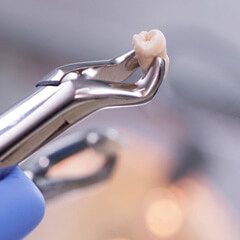Root Canal Treatment – Edison, NJ
Alleviate Your Pain, Restore Your Tooth!
Although your teeth are designed to withstand the pressures of chewing and biting, they may need repair over the years. For example, if a cavity develops, then our dentists at Rosenfeld Dental Associates need to remove the decayed tissue and restore the tooth with a filling. If the damage has progressed to the point where the bacteria has entered the nerve of a tooth, a root canal is usually necessary. Let’s take a look at the reasons for a root canal and how the procedure works!
Do I Need Root Canal Treatment?

With digital X-rays, our dental team can detect an infection deep inside the tooth’s pulp chamber, where nerve, lymph, and blood tissue reside. These systems allow each tooth to take in the nutrients it needs from your bloodstream and eliminate toxins and other materials. Normally, this chamber is well guarded by the tooth’s outermost shell—the enamel—and the middle layer of dentin. However, as a cavity deepens or as a crack reaches further within a tooth, this pulp chamber is exposed to bacteria. As infection sets in, tissues in the pulp chamber die, blood flow increases to fight the infection, and the pressure inside your tooth becomes extremely painful. Although a severe toothache is the primary sign of the need for a root canal, other symptoms include:
- A pimple-like growth along the gum near your tooth
- Swelling on the side of your face
- Tooth sensitivity
- Visible pus
- The feeling of an earache without the presence of infection
- Fever
If you are experiencing any of these symptoms, then time is of the essence. Treating an infected tooth as quickly as possible is not only recommended for the sake of your oral health, but your general health as well because the infection can spread and even be life-threatening in the most serious of cases.
The Root Canal Process

During root canal treatment, our Edison emergency dentist will remove the contents of the infected pulp chamber as well as the root canals that branch off from the chamber. After disinfection, the chamber is filled with gutta-percha, a biocompatible substance that expands to fill the chamber and prevent the return of infection. This chamber and your tooth are then sealed before we place a dental crown over the top of it for protection. You may be given a prescription for an antibiotic to further treat the infection, and an over-the-counter analgesic may be taken as well to alleviate any post-procedure discomfort.
The Benefits of Getting a Root Canal

Our office approaches root canal treatment by combining modern techniques with a biomedical perspective as opposed to the older, purely mechanical approach. The development of nickel titanium root canal instruments and the introduction of the modern methods of filling and sealing root canal systems now allow us to complete most root canals in a single visit. Gone are the days of three or four visit treatments. More importantly, gone too is the discomfort and excessive expense associated with these procedures.
Understanding the Cost of Root Canals

If you’re like most patients, there are two things that concern you about root canal treatment: pain and price. Don’t worry – the procedure will be virtually painless with the help of powerful numbing agents, and we’re here to help you navigate the financial side of your treatment in the most stress-free manner. In fact, we’ve even dedicated this next section to the topic!
Factors That Can Affect Root Canal Cost

In order to determine the price of your care, we need to first solidify the details of your treatment plan. That includes:
- The complexity of your case
- The number of teeth that need to be treated
- If any preliminary treatments are needed
- The type of restoration that will cover your tooth moving forward
Of course, that’s just a few examples. At your appointment, we can go over all of these and more in-depth before answering any questions you have so you aren’t left in the dark.
Is it Cheaper to Pull My Tooth?

When comparing the upfront price of a root canal treatment and a tooth extraction, you might think that the latter is the best choice for your budget. However, you need to consider the other factors involved, including the cost of the dental bridge, denture, or dental implant needed to replace the tooth. Plus, root canal treatment is a one-time procedure where tooth extractions require multiple appointments. Simply put, even if root canal treatment seems more expensive upfront, there’s a good chance that it’s the best choice for your smile and wallet in the long run.
Does Dental Insurance Cover Root Canal Treatment?

Dental insurance providers often cover the cost of essential restorative care – at least in part. So, it’s definitely worth reviewing the fine print on your plan to see if an emergency exam is included or if 50% to 80% of the cost is covered. If you’re not familiar with your benefits already, then give us a call. We’re happy to welcome plans from several popular providers, including Delta Dental Premier and Cigna, and we’ll do everything we can to make maximizing your coverage to the fullest a breeze.
Other Options for Making Root Canal Treatment Affordable

If you don’t have dental insurance, don’t worry – that’s just one of the financial solutions we offer. We also welcome CareCredit flexible financing, which allows you to space out the cost of your care into smaller, more manageable monthly chunks. As a result, the cost of root canal treatment can fit into nearly every budget! If you’d like more information on this financial solution, then give us a call – we’re here to help.
Root Canal FAQs
Can I Eat Before a Root Canal?
If you aren’t going to receive sedation, we recommend eating a healthy meal and thoroughly brushing at least a few hours before the procedure. You can expect your mouth to be numb for a few hours after the procedure, which will make it difficult to eat. However, it’s probably best to fast for a few hours beforehand to reduce the chances of nausea if you are going to receive sedation. It’s also best to abstain from alcohol for at least twenty-four hours before the treatment to prevent negative reactions with the local anesthetic.
How Much Pain Is Normal After a Root Canal?
While root canal procedures are rendered completely painless by local anesthetics, you can expect to experience some soreness and discomfort over the following days. You will probably first notice it after the anesthetics wear off, but this discomfort should be temporary and can be treated with over-the-counter pain relievers such as ibuprofen and acetaminophen. You can help yourself stay comfortable until the soreness fades by avoiding chewing on hard foods. If the discomfort hasn’t started to subside after three days, call our office for further instructions.
What Should I Do Before a Root Canal?
It’s generally advisable to eat a healthy meal, enjoy a thorough round of oral hygiene, and take an over-the-counter pain reliever to help reduce discomfort before receiving a root canal. However, it’s also important to abstain from alcohol and tobacco for at least twenty-four hours beforehand, as they can interfere or have negative reactions with the numbing medication. You should also get a good night’s sleep the night before to prevent anxiety while also bolstering your immune system so you can recover more quickly.
How Long Do Root Canals Last?
Root canals boast an incredibly high success rate, and most teeth that receive them retain their full chewing function for years or even a lifetime afterward. However, the lifespan of your root canal will depend on factors like the extent of the damage being repaired and how much time passes between receiving the temporary and the permanent filling. If too much time goes by, the tooth may be more likely to be reinfected. The best way to ensure that your root canal lasts for as long as possible is to practice excellent oral hygiene at home while following your dentist’s postoperative instructions precisely.
Do I Need Antibiotics Before or After My Root Canal?
Most root canals do not require antibiotic treatment before or after the procedure. If you are prescribed antibiotics before getting a root canal, it may be due to having a health condition that makes postoperative infection more likely. We will thoroughly go over your medical history beforehand to determine if antibiotics are appropriate in your case.
Can Root Canals Be Prevented?
Oftentimes, yes! The key is committing to healthy habits, including brushing, flossing, and rinsing with mouthwash consistently. Of course, it doesn’t end there. To prevent decay, chips, and other dental damage, you also need to wear a mouthguard during sports, exercise caution with extremely crunchy foods, and avoid using your teeth as tools to open things. Lastly, do your best to prioritize your biannual visits to our Edison dental office. That way, we can catch any oral health problems that do develop in the early stages (ideally, before a root canal or extraction is required).
Why Do I Need a Root Canal If My Tooth Doesn’t Hurt?
One of the biggest misconceptions about root canals is that they are only necessary when the patient is dealing with an excruciating toothache. The reality is that pain is just one of many abnormal symptoms that could stem from significant decay or damage. During your exam, we also look for dark discoloration, inflammation, and other common warning signs of trouble.
Do I Need a Root Canal If My Toothache Went Away?
Did your toothache seemingly go away overnight? If so, you might assume that you no longer need a root canal. The truth is, it’s more important than ever that you visit us for the restorative care you need. After all, the change in symptoms is often the result of the nerve dying, which means that there is only a small window of time left where saving your tooth is possible. So, don’t cancel or postpone your appointment!

